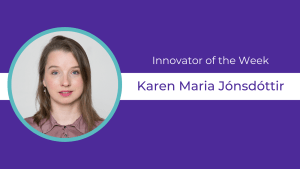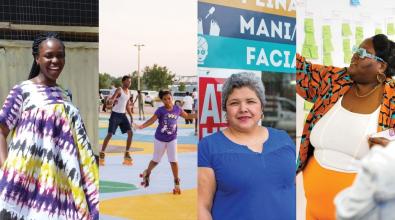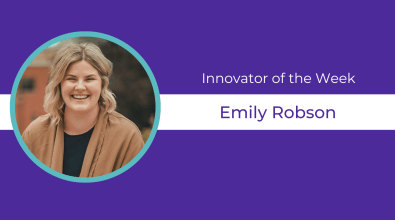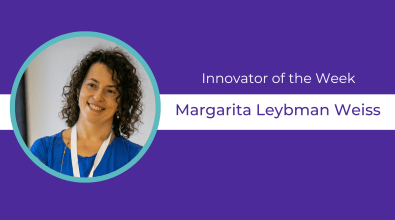Like in the creative arts, improvisation in innovation is key

Title: Head of Director’s Office, Service and Innovation
City: Reykjavik, Iceland
Can a previous career as a contemporary dancer prepare you to lead a city’s innovation efforts?
In the case of Karen Maria Jónsdóttir, the new director of Reykjavik’s Bloomberg Philanthropies-supported i-Team, the answer is absolutely.
Jónsdóttir says the common skill needed for both occupations is seeing the process of change—improvisation for a dancer—as the opportunity for creativity, not as a frightening step away from the tried and true and into the unknown.
“In the creative sector, in the performing arts, this change space is actually where you want to be. You don't want to be stagnated. You don't want to be in a place where nothing changes and nothing develops,” Jónsdóttir says. “If we are afraid to step into this creative space and utilize it and see it as the effective space for improving city services, then we should look for a different job.”
The focus for the moment for Jónsdóttir and her four-person team is increasing digital access for emotional and mental health resources for school children and their parents. This was a priority for the Reykjavik government even before the pandemic, but Jónsdóttir says the COVID experience has greatly exacerbated the need for better and more easily accessible mental wellness supports.
The Reykjavik i-Team is in the midst of user research that will then lead to ideation and an initial pilot, which Jónsdóttir hopes will be up and running by the fall. The aim is to create a system that focuses on the child, follows his or her progress through the school system and which is easily accessible and transparent for parents, within the stringent confines of the European Union’s data protection and privacy rules.
“We are going to put the user at the center, the child and its needs,” Jónsdóttir says. Like city officials across the globe, she will be looking to glean to positive lessons of the pandemic has provided on increasing digital access for city services and telehealth providers.
“The world has changed,” Jónsdóttir says. “We are looking at a totally different professional environment and the possibilities that come with that are also much greater today than they were two years ago. COVID has enabled us to look at things differently and that services can be provided in many different ways that distances don't have to be physical.”
The process also has given Jónsdóttir a chance to immediately break down silos between her team and the rest of city government, given that the project requires collaboration with lawyers, communication specialists, quality assurance and risk assessment. “When we started with the end-to-end process itself of school services, we have already connections in many different places, all the way from the mayor's office down to the grassroots of the city.”
Pro Tip: “Create a network around your team. If your team members aren’t connected within the city’s system and don't know who to turn to with challenges, you can’t get the most from their knowledge and abilities.”


